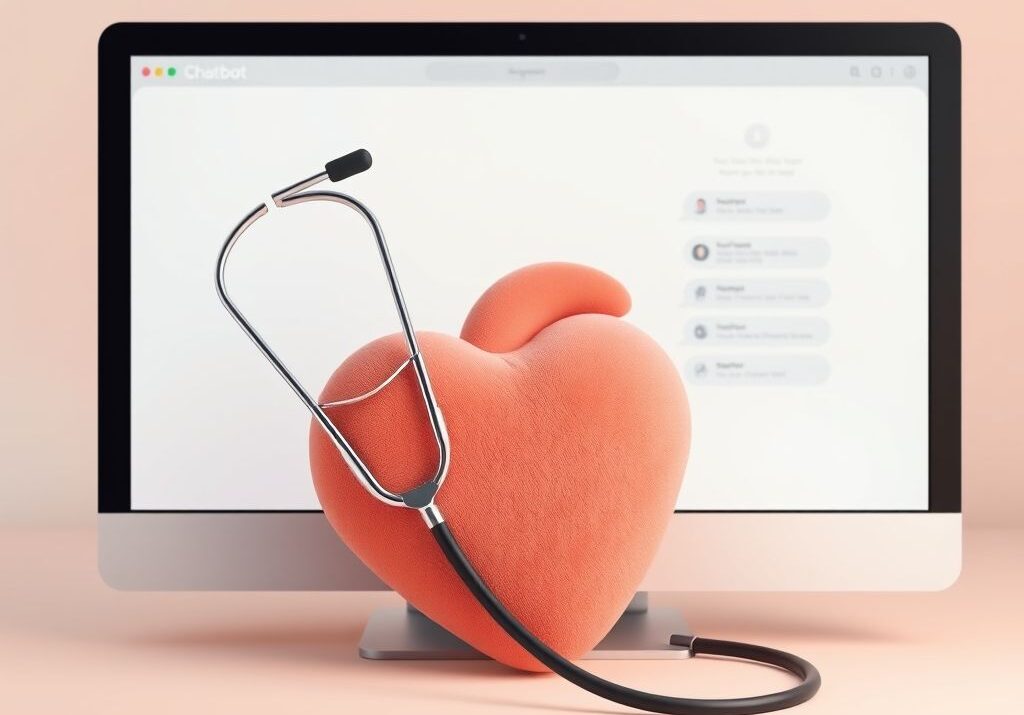Ever tried explaining your complicated symptoms to a chatbot? Felt like you were talking to a wall? You’re not alone. I stumbled upon an interesting study from Oxford that highlights a critical piece missing in the rush to embrace AI in healthcare: good ol’ human interaction.
This isn’t about bashing chatbots – they have potential! But, according to this study, patients using chatbots for self-assessment of medical conditions might actually end up with worse outcomes compared to sticking with traditional methods. That’s a serious red flag. The article on VentureBeat goes into detail, and it really got me thinking.
So, what’s going on here? Why aren’t chatbots delivering on their promise to make healthcare more accessible and efficient?
Well, I think it boils down to a few key things:
- Nuance is lost in translation: Chatbots, even the smartest ones, struggle with the subtle nuances of human language and emotion. Can it really understand the way you feel when you describe a pain? A 2023 study published in JAMA Internal Medicine found that while chatbots can provide diagnostic information, they often lack the empathy and communication skills of human doctors, which significantly impacts patient satisfaction.
- Data Bias: Chatbots are trained on data. If that data is biased (and let’s be honest, a lot of data is), the chatbot will reflect those biases in its responses. This can lead to misdiagnosis or inadequate care, especially for underrepresented groups. Research from the National Institutes of Health (NIH) shows how AI algorithms can perpetuate and even amplify existing healthcare disparities if not carefully developed and monitored.
- The Human Connection Matters: A doctor doesn’t just diagnose; they listen, empathize, and build trust. This human connection is crucial for patient adherence to treatment plans and overall well-being. A study by the Patient-Provider Communication Journal notes that strong patient-provider relationships are linked to better health outcomes, highlighting something a chatbot can’t replace.
- Over-Reliance: The convenience of chatbots might lead people to delay or skip consultations with healthcare professionals, even when necessary. Think about it: easily accessible information can sometimes lead to complacency. A report from the World Health Organization (WHO) emphasizes the importance of balanced health information access and caution against complete reliance on digital tools.
- Regulation Lags Behind: The rapid development of AI in healthcare is outpacing regulatory frameworks. There needs to be clear guidelines and standards for chatbot development and deployment to ensure patient safety and ethical use. As outlined in a report by the FDA, it’s crucial to monitor AI performance closely and address any potential risks.
5 Key Takeaways:
- Chatbots aren’t a replacement for doctors (yet). They’re a tool, and like any tool, they need to be used carefully and with human oversight.
- Data quality is paramount. We need to be vigilant about addressing biases in the data used to train these systems.
- Empathy matters. Healthcare is about more than just diagnosis; it’s about caring for the whole person.
- Don’t ditch your doctor. Use chatbots as a supplemental resource, not a replacement for professional medical advice.
- We need clear regulations that ensure AI in healthcare is safe, ethical, and equitable.
The bottom line? We need to be thoughtful and critical as we integrate AI into healthcare. Chatbots can be helpful, but they’re not a magic bullet. Let’s not forget the “human” in healthcare.
FAQs about Chatbots and Healthcare
1. Are chatbots safe to use for medical advice?
They can be helpful for general information, but should not replace a doctor’s consultation. Always confirm anything critical with a healthcare professional.
2. What are the main risks of using chatbots for health concerns?
Misdiagnosis, biased information, lack of empathy, and over-reliance are potential risks.
3. Can chatbots accurately diagnose medical conditions?
They can provide suggestions, but their accuracy can vary. It’s best to see a qualified healthcare provider for an accurate diagnosis.
4. What kind of medical information is safe to share with a chatbot?
Avoid sharing sensitive information like your full medical history or identifying details.
5. How can I ensure the chatbot I’m using is reputable?
Check for reviews, ensure the developer is a known healthcare organization, and be wary of chatbots promising miracle cures.
6. How is AI regulated in healthcare?
Regulation is still developing. Organizations like the FDA are working on guidelines for AI-based medical devices.
7. What data are chatbots trained on, and is it biased?
They are trained on vast amounts of medical data, which can contain biases. It’s important to be aware of this limitation.
8. Are chatbots designed to replace doctors in the future?
While AI will likely play a bigger role in healthcare, it’s unlikely to completely replace doctors, especially considering the importance of the human connection.
9. How can I use chatbots responsibly for my health?
Use them to research basic information, but always consult a doctor for diagnosis and treatment.
10. What are the benefits of using chatbots for healthcare?
Accessibility, convenience, and quicker access to general health information are potential benefits.







